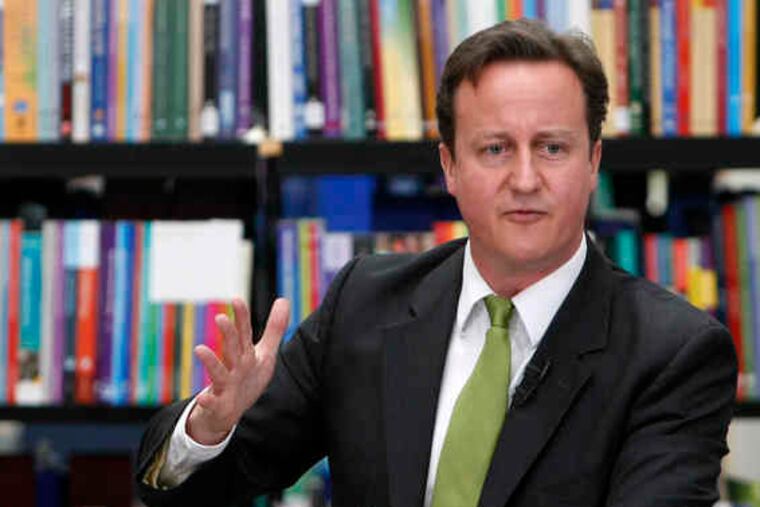Eurozone sets up big rescue fund
LUXEMBOURG - Eurozone nations on Monday started setting up a $1 trillion bailout fund that could rescue any member of Europe's currency union from default, aiming to soothe market jitters that have sent the euro to a four-month low against the dollar.

LUXEMBOURG - Eurozone nations on Monday started setting up a $1 trillion bailout fund that could rescue any member of Europe's currency union from default, aiming to soothe market jitters that have sent the euro to a four-month low against the dollar.
In other developments Monday, Germany said it would cut its annual budgets through 2014 by a total of up to $96 billion to set an example for the rest of Europe, and Britain's new prime minister said his nation's finances were worse than he feared.
The eurozone rescue funds, equal to euro750 billion and provided by the European Union and the International Monetary Fund, can be lent to any indebted nation in the zone that is at risk of default. The money is intended to counter investor fears that Spain, Portugal or other members could follow Greece in requiring a bailout to meet debt repayments.
The major portion of the money, a special purpose vehicle to borrow up to euro440 billion ($526 billion), will be ready this month, when countries formalize debt guarantees for some 90 percent of the package, said Luxembourg Prime Minister Jean-Claude Juncker, who led Monday's talks between eurozone finance ministers.
Another euro60 billion managed by the EU's executive commission "is available to cover urgent financial needs were it to arise" in the meantime, he said, while the International Monetary Fund will provide another euro250 billion.
The International Monetary Fund called in a Monday report for eurozone countries facing market pressure to shun "delayed or half-hearted" budget cuts and draft more in case they can't make current targets to reduce budget deficits.
Meanwhile, German Chancellor Angela Merkel vowed Monday to "set an example" by laying out plans to save euro80 billion in her own government's spending.
The wide-ranging savings package completed by the cabinet includes trims in social programs, such as a subsidy for new parents who stay home, more taxation for the nuclear power industry, and delaying the building of a replica of a Prussian palace in the heart of Berlin.
Merkel said as many as 15,000 federal government jobs could be shed through 2014.
Most of the measures still have to be approved by parliament, where Merkel's conservative government has a majority.
While Germany's finances are in a better state than those of many others in the 16-nation eurozone, its budget deficit is still above the maximum allowed by European Union rules and it has been particularly keen to preach the virtues of solid budgets.
In Britain, Prime Minister David Cameron warned in a speech of painful cutbacks that may shape the nation for an entire generation but are necessary because "the overall scale of the problem is even worse than we thought."
Cameron's government will announce cuts at an emergency budget meeting on June 22, less than two months after coming to power at the head of Conservative-Liberal Democrat coalition. On Monday, he remained vague on details of how his government planned to close its record deficit, which reached 152.8 billion pounds ($221.5 billion) or 10.9 percent of economic output in the last fiscal year.